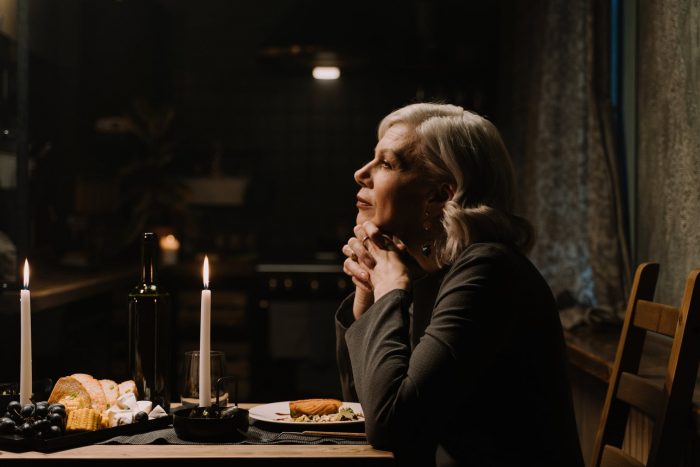Last month, I wrote an article entitled “Monogamy isn’t ‘Natural.'”
In the article, I mentioned a few scientific facts I read about the origins of monogamy and how it was adopted by our predecessors. Of course, I then proceeded to discuss my own thoughts and experiences regarding the subject, expressing a wilting enthusiasm for undulated commitment and insisting that many of us, more than likely, have at some point experienced an attraction to someone who was not our partner.
While I was quite confident as I wrote it, once it got published I began to second-guess my position and wonder what the heck people might think of me after reading it.
What would my current or future partners think after seeing the title? Would the publication of my thoughts on the topic sabotage my romantic future?
Fear began to percolate. I had a slightly uneasy feeling in the pit of my stomach for a couple of weeks following. Of course, my most immediate and pressing concern was how my girlfriend was going to receive it. Prior to it getting published, I prepared her for what I expected might come as a bit of a shock to her—reassuring her that she was enough and that my feelings for her were indeed sincere.
The fact of the matter is that everything I told her was true: I do love and care for her immensely, and as far as I’m concerned, I consider myself extremely fortunate to have her in my life.
She has never uttered so much as a single deliberately callous word to me, is nothing but supportive of my writing and other aspirations, always encourages me to remain positive about my work, and, perhaps most important of all, accepts me unequivocally for who I am—flaws, scars, and all.
In fact, she treats me so well that there are times I feel as though I don’t deserve her and wonder how any relationship could be so easy.
However, I also believe that enough, at least in this context, is a loaded word.
Is any one person ever really enough for us? That is something I repeatedly find myself asking. Do I feel guilty for asking such a question in the midst of all that I have? Absolutely.
But nothing is ever black or white—at least not through my lens. I tend to see some black and white figures, with many others colored in various shades of gray. I see most things as being somewhere along a broad continuum, and of course, that spectrum is the tool I use to base my value judgments on others as well as on the world around me. If you ever ask me for my opinion on a topic I’ve thought a lot about, get ready for a response filled with some ambiguity. I often see two sides, or many sides, and depending on their rationale, judge them both as valid in one way or another. And one thing I’ve realized is that many of the opinions I hold regarding love and relationships are not popular or widely accepted.
Getting back to the original question, however, if someone were enough for us indefinitely, it would presumably follow that all of our searching would automatically come to a halt. No longer would we feel an urge to seek out other contacts or strive for more in other facets of life. Instead, we would feel satiated in the company of this one person and in our own role as a romantic partner to them. All our needs and desires would already be accounted for.
But is that how it tends to work? Well, no.
We don’t suddenly meet a partner or get married and stop reaching out to make other connections in order to fill our cup. We don’t become less ambitious for other experiences outside of our love life. Why? Because any new partner cannot possibly meet each and every complex and multifaceted attachment-related need we possess.
I’ve heard married people sometimes admit to feeling lonely, despite otherwise being “happy” with their partner. Lines between a deep, familiar friendship bond and attraction can sometimes become blurred under the right set of circumstances, which is often why new partners do not feel comfortable when their partner resolves to maintain a friendship with an ex. This situation inherently carries the potential for one or both parties to reignite the former flame.
Yet, it happens quite often—probably a lot more than many of us know or think, regardless of how we feel for the new partner in question. The same thing can happen even without a history between the two people involved. The possibilities are endless.
Does this imply that we will necessarily act on our impulses? No. What it does suggest, however, is that irrespective of our behavior, our feelings themselves are not unduly tied to one person. Therefore, it begs the question: can we really consider ourselves 100 percent emotionally monogamous? Maybe not.
A month ago, I read a quote by Charles Bukowski:
“Love is a form of prejudice. You love what you need, you love what makes you feel good, you love what is convenient. How can you say you love one person when there are ten thousand people in the world that you would love more if you ever met them? But you’ll never meet them.”
After I read this, I wanted to hang those words on my wall. Never had I read a quote that resonated so strongly with my beliefs about the human heart as we experience it.
How can we ever say that any one person we meet is in fact “the one”? There are 7.9 billion people on the earth. God knows how many people could make us feel something we perceive as special or make some positive contribution to our life. When we single any one person out, we by default, participate in an unconscious act of discrimination. Why is that specific person better for us than the thousands of others we haven’t met or the ones we have yet to meet in our lifetime?
So, I’ve tentatively come to the conclusion that perhaps our wish to meet “the one” is all in vain. Maybe “the one” is simply “the one” for now, and somehow, we must accept this sobering fact instead of looking at our love life through rose-tinted glasses and selling ourselves on some idealistic illusion that has no basis in reality.
Yet, almost everyone believes that any current person they feel attached to is the only one for them. This is probably due to the flood of addictive neurochemicals like oxytocin, serotonin, and dopamine, along with our cultural conditioning about what love and relationships are supposed to look and feel like.
What I find challenging to reconcile are my own two somewhat contradictory feelings on the issues of love and monogamy. On the one hand, I stand fully behind the views I’ve expressed, while on the other, I find myself feeling equally disillusioned by them.
I sometimes miss my former self: the one who fell in love with abandon, throwing all questions, judgments, and discernments to the wind. I miss the hopeless romantic I once was. Yes, there are still remnants of that person left, but she has been hardened. Time and experience have ruffled her. Heartache has given her more jagged edges. She has grown more cynical and jaded.
After having been in a six-year relationship that resulted in marriage and ended in divorce, and then unexpectedly meeting the person I believe to be my “twin flame” soon thereafter—falling head over heels and then getting pulled out of the ocean and shoveled onto the dirt with my heart cracked open and buried alive—I sometimes find myself feeling as though love is nothing but a bag of damaged goods.
What, really, does it all amount to in the end? That is the central question I ask myself these days.
I hope one day I may feel differently about it. I long to feel the stuff of all that beautiful poetry I love to read. I yearn for that “can’t eat, can’t sleep, reach for the stars” kind of experience. Realistically speaking, I know it doesn’t last, but I still want to feel it nonetheless.
But I know too much now. I see right through most people. I see all the superficiality in this game we call courtship. Everyone wants to plug in, but no one knows quite how to connect. It feels like nothing is new to me anymore and almost nothing seems to shock or impress me. I feel as though my heart has been put through the grinder, poured into a container, and then put outside to freeze. The winter feels so long.
There is a silver lining to all of this though. I get to share my heart with a few strangers who care enough to read my words and can possibly even relate to them. I can hope. I can dream. I am also lucky to have the love I do have, just like I am fortunate to have anything else—for now.
And maybe that is really all we can ever say with any degree of conviction: that we’re lucky to have what and who we do have now, in this current chapter, whilst remaining open to the fact that there will be other “ones” in the future.
~












Read 28 comments and reply